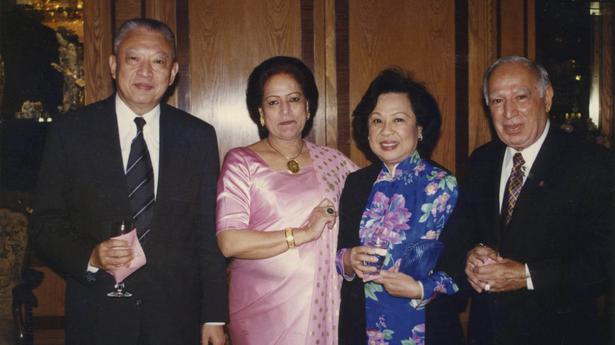
Two States: The Indian Hong Kongers and their unique legacy
The Hindu
Most of the 50,000 Hong Kongers who commute on the Star Ferry every day are likely unaware of its roots in Mumbai. But that’s not the city’s only Indian connection
On most mornings, I line up outside Hong Kong’s Star Ferry Pier on the dockside of the famous Victoria Harbour, joining daily commuters for what must be one of the most charmed morning commutes anywhere on the planet. As the siren rings to announce the lowering of the ramp, we shuffle on board the Morning Star. Those few steps aboard the wood-panelled interiors of the ferry transport us not just across the waters to Hong Kong Island, but into another era.
The Morning Star first set sail in 1880, the brainchild of Dorabjee Naorojee Mithaiwala, a cook from Mumbai who launched Hong Kong’s first ferry service. Mithaiwala landed in Hong Kong in 1852, coming, according to one account, as a stowaway. The captain of his ship allowed him to stay as a cook. Putting his quickly learned culinary skills to good use, he then launched a successful bakery, one of many profitable ventures. The serial entrepreneur’s greatest legacy, however, was the Kowloon Ferry Company, which he later sold, and was renamed Star Ferry.
ALSO READ: The tale of Hong Kong, a city torn between two systems
Most of the 50,000 Hongkongers who every day take the ferry, which has over the years been revamped and upgraded, are probably unaware of its roots in Mumbai. But what’s remarkable is that Star Ferry is by no means the only enduring Hong Kong institution with an Indian connection.
A short walk from one of the ferry’s piers on Hong Kong Island in the bustling Wan Chai district is Ruttonjee Hospital, first founded in the early 20th century by Jehangir Ruttonjee as a sanatorium to help fight tuberculosis, and subsequently expanded into a world-class hospital by the Ruttonjee-Shroff family, who are still deeply involved in health and social welfare activities in Hong Kong.
Even The University of Hong Kong, the city’s leading educational institution, wouldn’t be here today without the pivotal role played by Hormusjee Mody in its founding. A bust of Mody, who also has the famous Mody Road in Kowloon keeping his name alive, still honours his legacy at the entrance of the university, which this year marks its 111 th anniversary.
“Indian merchants, many of them Parsi, made invaluable contributions in shaping today’s Hong Kong,” says Purviz Shroff, who carries on the Ruttonjee-Shroff family legacy as a philanthropist and supporter of the arts in Hong Kong. “There are many other Indians who have made Hong Kong their home in the last century… They and their descendants became part of Hong Kong.”













